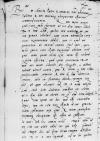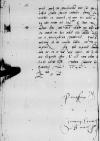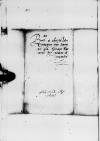Letter #2766
Seweryn BONER to Ioannes DANTISCUSCracow (Kraków), 1544-11-04
| received Heilsberg (Lidzbark), 1544-12-17 Manuscript sources:
| ||||
Text & apparatus & commentary Plain text Text & commentary Text & apparatus
Reverendissimo in Christo Patri et Domino, domino
Reverendissime in Christo Pater et Domine, domine observandissime. Salutem et mei meorumque obsequiorum officiosam commendationem.
Quas nuper accepi, gratissimae mihi fuerunt, ut esse aliae omnes solent Reverendissimae Dominationis Vestrae litterae, quibus non contenta me pro sua gratia salutare, eam etiam intermissae scriptionis excusationem attulit, qua ei apud me praesertim uti minime omnium fuit opus, quin mihi potius apud illam excusatione utendum esset. Quod minus, quam velim saepe, meum illi scribendi exhibeo officium, quod ipsum praestarem Reverendissimae Dominationi Vestrae non minus libenter atque frequenter, si mittendi subinde adesset occasio, qua et eorum, qui hinc istuc proficiscantur, penuria et mea quoque hinc absentia privor. Soleo enim plerumque abesse peregre eoque fit, ut quas alicunde ad Reverendissimam Dominationem Vestram accipio litteras, domino
In novis est hic omnino nihil.
Datum
Reverendissimae Dominationis Vestrae paratissimus servitor
[1 ] Epiphany - January 6


